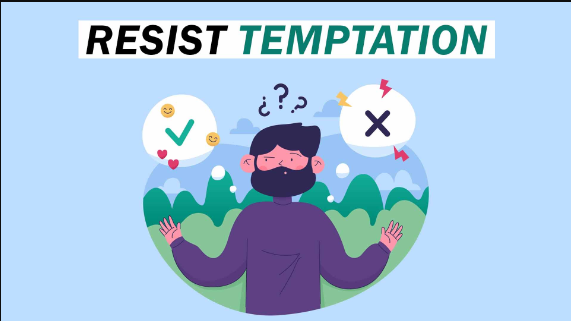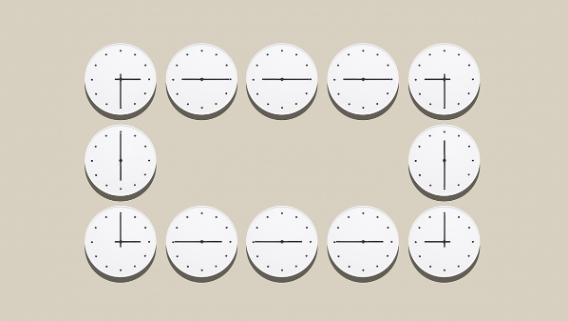Everyone wants to be productive and reach their goals. But not all of us can keep up with self-discipline all the time. Luckily, there are ways to be more productive without too much effort. Here are twelve tips for managing time, perfect for those who are a bit lazy but still want to do well.
Tracking your activities is important for business success. It lets you see how long you spend on things, making you more productive. The ClickUp Chrome extension is great for this. It helps with time tracking, keeping you focused. And writing goals in ClickUp can help you stay on the right path, making real progress.
The Eisenhower matrix is a great tool. It helps you see what’s both urgent and important. This way, you can focus on the big tasks first, gaining momentum. Keeping a schedule and trimming less urgent tasks help you finish your to-do list faster. Also, breaking up tasks into smaller pieces means you can move forward even when you’re short on time.
It’s good to take regular breaks, like going for a walk or doodling. This refreshes you and helps with focus. And asking for help when you need it saves time and makes both you and your team more effective. A tidy desk reduces distraction, helping you think more clearly and be creative. Tools like ClickUp make team projects easier by improving organization.
Using time blocking helps you manage your calendar well. This boosts your time management. It’s good even if you work with lazy people, which many do. These tips and tricks can help you focus and achieve your goals more easily.
Don’t Rely on Self-Control
Some people think self-discipline is all you need to reach your goals. But, it’s not always reliable, especially when you’re stressed, hungry, or tired. Studies show that relying too much on self-control makes it hard to stay productive.
Why Self-Control is Unreliable
Our willpower works like a muscle; it can get tired out. Stresses can make self-control slip, meaning you might not do as well. Also, according to research, when our minds wander freely, we think about the future a lot. This might boost creativity and problem-solving but shows we can’t just rely on willpower.
Building Systems for Better Productivity
To be more productive, setting up good systems and habits is key. Chris Bailey says organizing your space for good habits can make you more focused. Using helpful systems like planning your day can cut distractions and save your mental energy for important work.
Taking breaks to relax can also help a lot. These pauses let your brain rest and lower stress. It can get you ready to work better. This way, you focus on creating good habits, not just using willpower.
Remember, it’s crucial to set up systems that help you reach your goals over time, without wearing out your self-control. These methods can make reaching your goals easier without the struggle of always needing willpower.
Make Bad Choices Hard
Making bad choices hard is a key step to forming good habits. By reducing temptations and making negative actions harder, you can boost your success. Changing your surroundings strategically helps improve your choices and how productive you are.
Removing Temptations
One great way to help you make better decisions is to remove temptations. Studies show moving unhealthy foods just a little further can cut how much you eat by 16%. Small changes can make it easier for you to reach your goals.
Examples of Increasing Friction
Making bad choices harder can also mean adding more effort. For example, don’t keep junk food in your home or put your phone in another room when focusing. These acts make you think twice, helping you to choose wiser options. By doing this, you use your natural tendency to avoid effort, keeping distractions away and helping you follow your plans.
Use Habits in Place of Self-Control
Creating daily routines that help you work without needing strong self-control can really boost your success. Experts say trying to control everything with willpower can tire us out. It’s better to make habits that stick for the long haul.
Power of Habits
Imagine someone going from lazy to fit, working a lot, running 15 miles a week, and lifting weights. This big change happened by slowly picking up everyday habits that they could keep up with. These new habits made them happier.
If you love what you do, staying disciplined is easier. Changing habits to match your interests, like picking a fun workout, keeps you wanting more. It’s true, doing is better than just wanting to do. Habits help more than motivation does.
Simple Daily Habits
Adding easy habits to your daily routine can really move you forward. Spending an hour writing each day, like big families tackle chores, can make you super productive. Foods high in protein, like Greek yogurt and almonds, can power you through. Even a little exercise can lift your spirits and your drive.
And it’s okay if you sometimes miss your goals. Being easy on yourself makes the journey to success smoother. Learning self-discipline is all about staying consistent with your daily habits. This way, you’ll get where you want to be without the stress of always fighting with yourself.
Decide on the Most Important Things to Get Done Each Day
Focus on the three Most Important Things (MITs) each day. This can really boost how much you get done and your focus. Knowing what you need to do most helps your work flow better. It also makes sure you handle key tasks well. When you set clear goals, you won’t feel bad if some things on your to-do list aren’t done at the end of the day.
Break big projects into smaller parts to make them easier to do. This way, you can get more done. Also, use tools to help with regular tasks, like paying bills. Doing so saves a lot of your time. You can also ask for help or hire others to do certain tasks. This way, you save time and energy, focusing on what moves your goals forward.
Try the Pomodoro Technique by Francesco Cirillo for staying focused. It’s about working for 25 minutes, then taking a short break. Using a timer makes you concentrate better. It also helps you avoid doing things that aren’t important. This way, you get to focus on tasks that are really key for you.
Work smarter, not harder, to get better results. Find what times you work best and use those times to focus. Setting doable goals every day and writing them down helps you finish essential tasks. By concentrating on a few tasks and doing them well, you achieve better results and focus more on what’s important.
Laugh in the Face of Discomfort
Facing discomfort helps us grow and succeed. It’s not about avoiding hard times. Instead, we learn to be stronger through them. Mindfulness is one great way to deal with discomfort. It lets us see our thoughts and emotions clearly. This helps us control our feelings better and stay focused.
Mindfulness Practices
Learning to be mindful is key for a growth mindset. Psychologist Sarah Edwards found that mindfulness can help when tasks seem impossible. Her work on discomfort management shows that breaking big challenges into small steps works. Mindfulness boosts our self-awareness. It helps us deal with fear and worry better.
Dealing with Fear and Growth
Beating fear is vital for growth. Scary thoughts can make it hard to think clearly. They lower the chemicals in our brain for critical thinking. Sometimes, fear is a sign of deeper mental health issues like ADHD or depression. To move past these fears, try tackling small parts of big challenges first. This helps build a mindset focused on growth. Isn’t that what we want to achieve?
Also, fear and putting things off can impact those around us. Productivity coach Justin Wright notes that beating fear can make us more productive. By using a mindful approach, we become stronger and better able to face life’s challenges. This is key for lasting personal and professional success.
Reframe Sticks and Stones
Getting criticized can make us want to defend ourselves. This happens because we take negative feedback personally. It’s a big issue in our lives, both at home and at work. The phrase “trauma response” is common online. It suggests criticism is like getting emotionally hurt. But science doesn’t back that up.
Changing how we see criticism changes everything. How we emotionally frame feedback matters a lot. Instead of feeling attacked, we can see criticism as advice for everyone’s success. This change puts growing stronger over feeling hurt first. It’s like how schools and health care are starting to think about past traumas that many people have had.
Listening well to feedback can make us grow a lot. Understanding negative feedback is key. We shouldn’t mix up the uncomfortable feelings with the story we tell ourselves. Misusing terms like “trauma response” online can make us jump to wrong conclusions. But knowing what the feedback is really about can help you react better.
Many now say criticism needs to be softer, like it causes trauma. But this idea is spreading too much, making us miss the real point. It’s everywhere, from work to how we talk to our loved ones. We are focusing more on avoiding hurt than getting stronger. Seeing criticism in a better light helps our own growth. And it makes our communities better places.
Dealing with criticism is a big deal in tough jobs like healthcare. Workers there face lots of challenges. Often, they have to pick up the slack for others. This can really stress out nurses. In these tough situations, handling feedback well is key. It keeps the work environment positive and smooth.
In the end, seeing criticism in a healthier way helps us grow. It’s not about personal trauma. It’s about learning and getting better. This change does more than help us. It builds trust at work and in our communities. And it makes talks between us better too.
Learn Your Cycles of Energy and Focus
Productive time management involves knowing your own cycles of energy and focus. This means knowing when you work best. Then, you can plan your hardest tasks during these times. Doing this makes your work easier and less stressful.
Identify Peak Energy Times
Everyone’s energy changes throughout the day. You may feel more alert at some times than others. Learning when you have the most energy can help. This way, you can tackle your most difficult tasks when you’re most alert.
Scheduling According to Energy Levels
Planning your day around your energy levels is smart. Put tasks that need a lot of focus when you’re most alert. Save your lower-energy times for simpler tasks. By working with your body’s rhythms, you can get more done and feel less stressed.
Track How You Spend Your Time
Good time management means closely watching how you use your time. It’s important to know where your time goes. Activity tracking shows how you use your time productively. It also helps find parts where you might be wasting time. Many people find it hard to manage their time well. They often run late or miss deadlines.
Activity Tracking Tools
Today, we have helpful tools for managing our time better. Toggl, RescueTime, and Clockify are a few examples. They let you see how much time goes to each task. This can stop multitasking, which can make you 40% less productive. These tools also help you find tasks that take up too much time. They can help you use your time better.
Benefits of Time Tracking
Using time tracking has many good points. It helps keep meetings to 30 minutes. This avoids wasting time. For those who work long hours, tracking time is also important. It shows when to take a break or share tasks with others. This helps avoid getting too tired. It also helps you plan better and make smarter choices.
Reduce Task Scope for Flexibility
Today’s work world requires flexibility. Back in history, people in Manchester worked 70 hours a week. But now, we see the value of reducing workloads.
Companies have learned to cut back on tasks when things get busy. By planning in a flexible way, they keep work manageable for their teams.
Henry Ford showed that working less can mean getting more done. He started a five-day workweek that boosted productivity. Others, like Keynes, Franklin, and Nixon, shared their vision of shorter workweeks, too.
The key is setting clear goals so tasks can be adjusted easily. This makes work more manageable for everyone.
In today’s world, working too much can actually lower productivity. Studies suggest creativity hits its peak in just six hours a day. This is why companies are focusing on smarter ways to work.
They’re investing in technology for remote work. They’re also fine-tuning work-from-home policies. This helps keep a happy, healthy workplace.
FAQ
Why is self-control considered unreliable?
Self-control changes with stress, hunger, and more, so it’s not always there for us. Creating a good environment and habits helps us not rely too much on self-control. By doing this, we can achieve more of our goals.
How can building systems improve productivity?
Building systems adds structure, helping us meet our goals. This way, we’re not always trying to control ourselves. We use the system to stay focused and productive.
What are some effective ways to remove temptations?
To avoid temptation, make it harder to do the things you shouldn’t. Removing temptations from your sight can help a lot. This makes it easier to focus on what really matters.
Can you provide examples of increasing friction to avoid bad choices?
Placing snacks far away, turning off distracting notifications, and blocking sites can all help. These little steps make it harder to jump into unwanted activities right away.
How do habits replace the need for self-control?
Simple habits make big differences over time. Instead of always trying hard to control ourselves, we focus on forming good habits. This way, we stay productive with less stress.
What are some simple daily habits that improve productivity?
Getting a good night’s sleep, working at set times, and making a to-do list each morning are good habits. These habits lay a solid base for reaching our daily goals.
How can prioritizing tasks help in achieving daily goals?
Choosing the three most important things to do each day helps us stay on track. This way, we put our effort where it matters most, avoiding feeling like we haven’t done enough.
What role does mindfulness play in managing discomfort?
Mindfulness lets us look at our thoughts and feelings clearly. It helps us deal with discomfort and stay focused. Practicing mindfulness helps us grow in our personal and professional lives.
How can one deal with fear to foster growth?
Mindfulness and embracing new challenges can turn fear into a step forward. This approach lets us see difficulties as ways to get better, not as limits.
What is the art of reframing criticism?
Reframing criticism means separating the feel of it from how we think about it. Seeing feedback as a way to do better helps us improve. It’s about learning, not taking things personally.
How can identifying peak energy times enhance productivity?
Knowing when we’re most focused can help us do the hardest tasks then. This makes our work flow better and needs less push to get done.
What are the benefits of tracking how time is spent?
Tracking our activities shows us how we really use our time. This can highlight where we waste time and help us use it more wisely on important things.
How can reducing task scope maintain progress?
When we have to deal with a lot, focusing on fewer tasks keeps us on track. It helps keep our progress steady even when things get busy.

More Posts
11 Time Management Tips for People With OCD
Obsessive-Compulsive Disorder (OCD) makes daily life hard. It brings unwanted thoughts and rituals that take up a lot of time. Many people exploring OCD and time management techniques struggle because obsessive compulsive disorder...
9 Effective Time Management Tips for Virtual Assistants
Virtual assistants have many work tasks and personal duties to balance. It is important for them to manage time wisely. This guide will show them nine effective strategies to boost their efficiency. One...
8 Modern Home Office Design Ideas for Productivity and Privacy
For most people, working from home seems like a dream. You envision waking up, tossing on something comfy, and walking into the next room to start each day. No commute, no conventional office,...
OKR Case Studies: 5 businesses who successfully Use OKRs
Before switching to OKR’s, every company has some sort of fear regarding the impact of this framework to their business. The best way to help them overcome this fear is by letting them...


